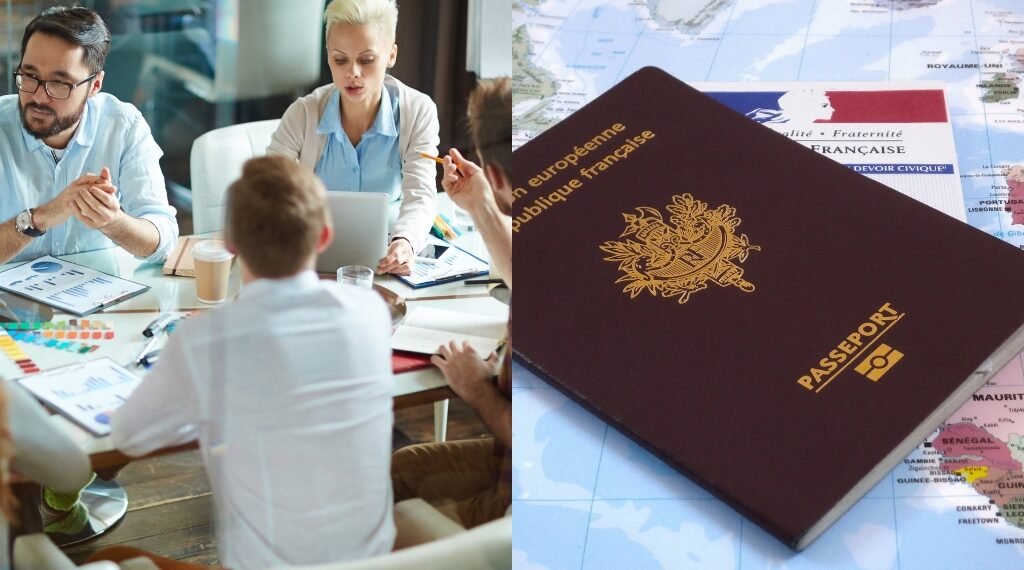Discover when must you receive a defensive foreign travel briefing to ensure you stay informed and safe during international trips.
If you are planning a foreign trip or at least dream about it, then most likely you have heard of “defensive foreign travel briefing, but probably you do not know precisely what that is, or more importantly, when must you receive a defensive foreign travel briefing? Whether you are a government employee, military personnel, or an individual who often travels to sensitive areas, this guide will walk you through the essential details in a conversational and relatable manner.
And, of course, I will be sprinkling in some personal anecdotes and examples to keep things engaging because, let’s be honest, security briefings aren’t exactly the most thrilling topic until you realize how critical they are to your safety.
Table of Contents
What is a defensive foreign travel briefing?
Now let me deal with “what” before handling the “when”. A defensive foreign travel briefing is a session that, essentially gives insight into preparing against those risks foreseen from abroad. In other words, it would serve to act almost like an insider guide on keeping safe from unwelcome or uninstructed atmospheres and or foreign places.
The briefing typically covers:
Now that we know what it is, let’s talk about when you need it.
When Must You Receive a Defensive Foreign Travel Briefing?
Short answer: You should have a defensive foreign travel briefing before your trip abroad, or at least on an annual basis.
But there’s more to it than that. Let’s break it down:
1. Before Going Abroad
Let me put it this way: You are preparing for a trip abroad for work purposes, to some country you have never been to. You are excited, yet a little apprehensive, considering the possible risks you have been hearing from that region. This is where you need a defensive foreign travel briefing.
In the case of business travel or even research-related ones, or for that matter leisure-which is a pretty rare case of exception are pretty much compulsory, come what may, for government or military personnel prior to their mission at destinations tagged as high-risk.
2. Once a Year
Even if you are not traveling, you have to have this briefing once a year. Why? The risks evolve. What was safe last year may not be safe now. It’s like an annual refresh for your brain in security, a little of the “annual security refresher army”.
Think of it, if you will, as doing a personal update in antivirus software: you would not want to be running last year’s version and need to stay updated to protect yourself and your data. The same goes for personal safety.
3. After Returning from a Long Trip (90 Days or More)
If you have been abroad for a long time, 90 days or more, you will also need to attend a defensive foreign travel briefing. Why? The risks don’t stop when you arrive back home. You will need to be debriefed, and informed of any security concerns that may have arisen while traveling.
Why are these briefings so important?

By now, you may be thinking, “All this sounds a bit over the top. Do I need a briefing every year or before every trip?” To which the answer is yes. Let me share a quick story to illustrate why.
A friend of mine, whom I will call James, once went on a business trip to a country with a rather complicated political environment. He thought the briefing before his travel was somewhat of a formality. Well, his travel turned out to be quite an experience, especially when some unexpected questioning by local authorities about his work took place.
The short briefing he attended prepared him for that, and so he kept his cool while undergoing interrogation without necessarily releasing too much sensitive information.
That’s the thing: You never appreciate these briefings until you have a need for the knowledge that they impart.
What topics are covered in a defensive foreign travel briefing?
Okay, what is it that you get to learn during this briefing? Let me summarize the key topics:
1. Capture, Interrogation, or Exploitation Risks
That does sound a bit melodramatic, but that’s a reality in some corners of the globe. You will find out how to minimize your risk from hostile nations or groups during the briefing.
2. Contact with Foreign Nationals and Authorities
Ever heard the expression “loose lips sink ships”? It’s truer than ever when the nationals or authorities concerned are foreign, and that is just what the briefing will teach you: what not to divulge and how to sidestep such tricky conversations.
3. Protection of Personal Property
Ever have one of those suspicions when you’re traveling that someone has been into your luggage? The second part of the briefing covers recognizing if your stuff has been compromised and what is to be done.
Safety Tips Overseas
Even with a defensive foreign travel briefing under your belt, there’s more you can do to prepare. Following are some practical tips:
1. Keep Trip Details Private
Only your immediate family and very close co-workers need to know about your travel plans. The fewer people who know, the less the chance that it may fall into other’s hands.
2. Choose Reliable Accommodations
Only stay at hotels recommended by colleagues, the U.S. Embassy, or good consultants; be prepared to pay more for peace of mind.
3. Keep a Low Profile
Avoid drawing attention to yourself: flashy clothes, expensive jewelry, or boisterous behavior will make you stand out.
4. Beware of Friendly Strangers
While it is good to make new friends on holiday, beware of very “friendly” strangers particularly those who ask too many sensitive questions about your background or occupation.
5. Avoid carrying large sums of money in cash.
This one’s a no-brainer. When at all possible, stick to credit cards or other forms of ‘safe’ payments.
How does it relate to national security?
If you’re a member of the military or government, your actions abroad don’t just affect you—they can have broader implications for national security. The personnel security program protects national security by ensuring individuals are aware of potential risks and how to mitigate them. When you think about it, a defensive foreign travel briefing is not just to protect you; it is about the sensitive information you carry and those you represent.
A Personal Take: Why these briefings matter to me?

Okay, I’ll say it: when I first had to go to a defensive foreign travel briefing, I thought it was overkill. I was not going to a war zone but to a bustling European city. Of course, as the briefing got underway, I realized just how little I knew.
For example, I learned that the use of public Wi-Fi, let alone something as simple, could reveal sensitive information: the importance of keeping my itinerary private something I had never thought about.
Now, I find these briefings an integral part of my travel preparation. They have instilled in me the confidence to navigate unfamiliar environments with a sense of security and awareness.
Final Thoughts
So, when must you receive a defensive foreign travel briefing? If you’re heading abroad, the answer is clear: before your trip or at least once a year. These are not check-box briefings but a very key tools to remaining safe and preserving sensitive information.
If you’re going to travel for work, study, or leisure, then take the time to prepare. Trust me, it’s worth it. And hey, if you have a trip planned, why not start planning already? Pack smart, stay aware, and most importantly, enjoy the ride. Safe travels!
Additional Resources
If you’re looking for more information on defensive foreign travel briefings or related topics, here are some helpful resources:


